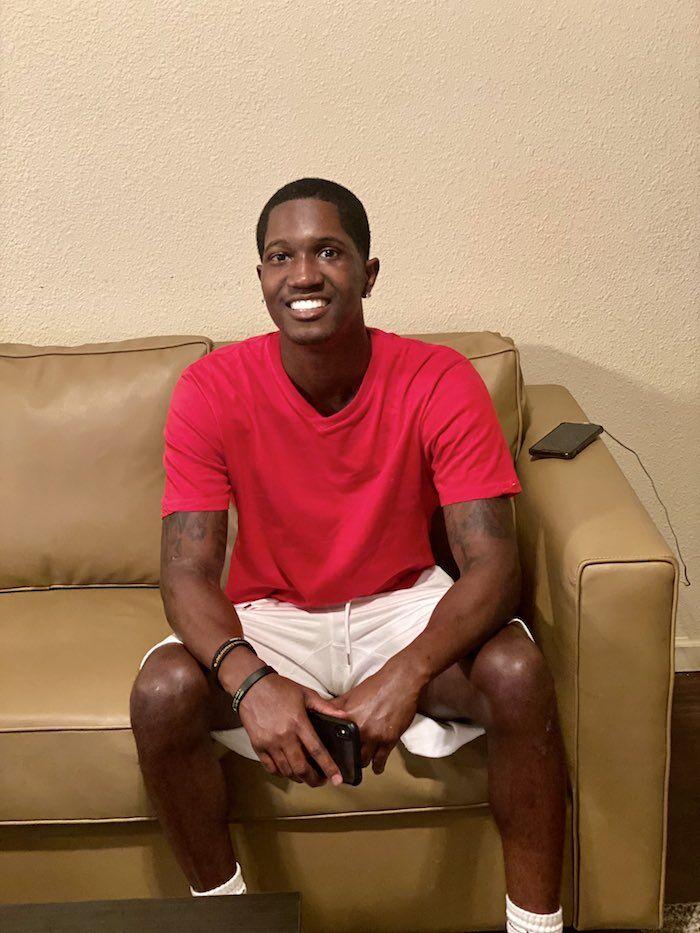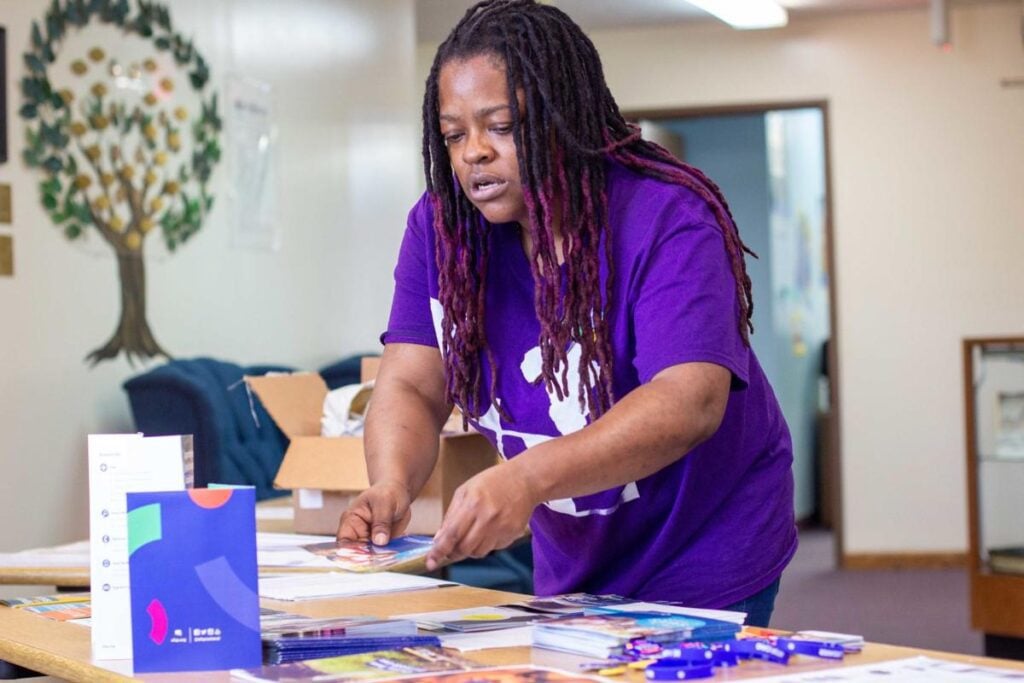When Latricia Hanyard’s son was murdered in 2013, she began noticing symptoms of depression. She began isolating herself and felt a deep sense of loneliness, but she never experienced any suicidal thoughts. Based on what she had always heard about depression, if you don’t want to hurt yourself, you don’t need help.
“I never told a doctor, or told anyone,” Hanyard, 47, said. “I just handled it on my own, because I thought that’s what you were supposed to do.”
NATIONAL SUICIDE PREVENTION LIFELINE: 1-800-273-8255 or chat online
When Hanyard was approached about working on a Youth and Caregiver Mental Health Workshop, hosted by the National Alliance on Mental Illness (NAMI) of Greater Indianapolis, she realized she wasn’t alone in how she felt.
“It was a real open environment,” Hanyard said of the workshop. “I learned how to cope with depression, and learned how to talk about what I was going through so I can get help.”

Hanyard, who hadn’t felt depressed before the death of her son, said the workshop helped her learn that depression can be triggered by trauma, as well as external situations, such as a pandemic.
“I learned a lot about what everyone is going through,” she said. “There’s help out there, and there are people willing to listen.”
Hanyard said she plans on discussing her symptoms with her doctor for the first time soon. Unfortunately, a study from Community Partners in Care found that just 1 in 3 African Americans nationwide seek help for mental health symptoms.
‘They’re tired of suffering in silence’
Experts who advocate for more open conversations about mental health say the stigma has lessened for African Americans, although they also agree it’s still a problem.
Beatrice Beverly, board president of NAMI of Greater Indianapolis, credits more ad campaigns and individual African Americans who are willing to be more open about their mental health struggles.
“They know it’s not just them,” she said. “They’ve been frustrated in silence. Now they have allies out there.”
There probably aren’t enough allies, though, as advocates worry that mental health care practitioners aren’t culturally competent enough. The American Psychological Association — with more than 121,000 researchers, educators, clinicians, consultants and students — was only 2% Black as of 2017.
NAMI targeted 50 families for its workshops, Beverly said, and 23 had completed it as of Sept. 23. Participants meet twice a week: Tuesdays are for support, and Thursdays are for workshops such as communication strategies and coping skills.
“They’re tired of suffering in silence,” she said.
Dayvid Brown, a therapist, also said more exposure is helping move the conversation for African Americans, but he’s worried about how grief and sudden loss associated with the pandemic, as well as a looming presidential election, might impact that.
“At some point when you’re stuck in one of the stages of grief, that’s when it becomes major depression or post-traumatic stress disorder,” he said.
Dr. Carrie Dixon, president of the Indiana Association of Black Psychologists, said while stigma surrounds mental health for all races, cultural differences between Black and white individuals impact treatment.
The need to be strong, or at least perceived as strong, Dixon said, keeps a lot of African American patients, particularly males, from seeking treatment. However, Dixon said it’s impossible to ignore the role of medical mistreatment in many African American patients’ reluctance to get help.
“Black people have been used as guinea pigs,” Dixon said. “We’re reluctant to go to an institution that we know has historically mistreated us. That mistrust is there, and there’s a reason why.”
Dixon said cultural differences and a misunderstanding of Black patients may cause white therapists to over diagnose African Americans with health issues such as depression and prescribe stronger than necessary medications.
The church’s large role
The church has long been an enshrined institution for Black life in America and is hardly ever excused from social tides. Pastors and other religious leaders hold a considerable amount of sway and can use it to either advance or restrict conversations about mental health.

Denell Howard, pastor at Hovey Street Church of Christ, accepts this responsibility. He recently preached about suicide since September was National Suicide Prevention Awareness Month, and the church invites mental health professionals to do workshops every March.
“Churches have to stop being selfish by believing that they are the only answer,” he said.
In a perfect world, Hovey Street Church of Christ would have a therapist on staff, Howard said, but the small church doesn’t have the resources.
Julie Hayden, chapter administrator for the local NAMI branch, said the organization has information sessions at churches and encourages people to listen to, not shame, those who are going through a mental health crisis.
Contact staff writer Tyler Fenwick at 317-762-7853. Follow him on Twitter @Ty_Fenwick. Contact staff writer Breanna Cooper at 317-762-7848. Follow her on Twitter @BreannaNCooper.








